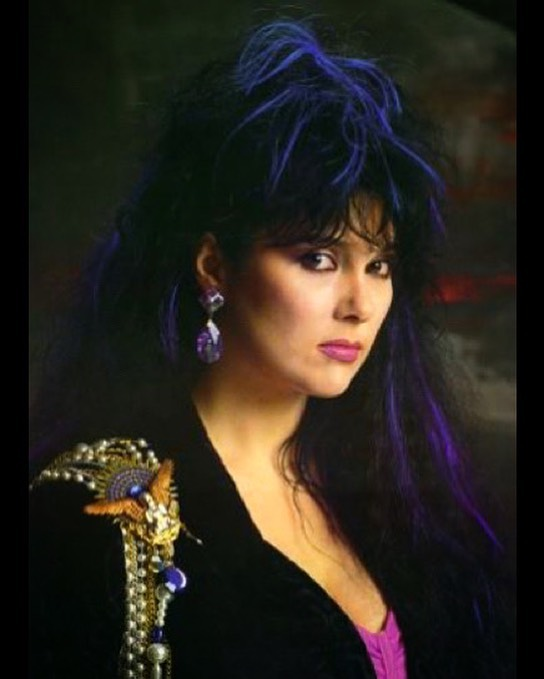A Voice That Shook the Rock World
Imagine a sound so powerful it feels like a lightning strike—fiery, commanding, and impossible to ignore. That’s the magic of Ann Wilson. With her soaring soprano and fearless stage presence, she turned the male-dominated rock world of the 1970s upside down. When Heart’s anthems like “Barracuda” or “Crazy on You” hit the airwaves, you didn’t just hear the music—you felt it rumble in your chest. Ann wasn’t simply singing; she was roaring, and her voice became a symbol of confidence and female strength in a scene long ruled by men.

Early Roots That Forged a Rock Icon
Ann Wilson’s story began on June 19, 1950, in San Diego, California. Born into a military family, her childhood was a blur of different places—from the warm California coast to the misty skies of Washington State. Her father, a Marine Corps bandleader, and her mother, a gifted pianist, filled the Wilson household with music. But life wasn’t all easy notes—Ann battled a childhood stutter, finding her true voice not in conversation but in song. By her early teens, she and her younger sister Nancy were already harmonizing on Beatles and Simon & Garfunkel covers, turning family garages into impromptu concert halls. The shy girl who once struggled to speak had found a way to command attention—with a voice that would one day define an era.
Video : “Dreamboat Annie” Heart
Heart’s Electric Beginning
By the early 1970s, Seattle’s underground music scene was buzzing, and Ann Wilson was ready to make her mark. She joined a band that would soon be known simply as Heart, captivating audiences with her powerhouse vocals and magnetic stage presence. When Nancy joined a few years later, the Wilson sisters became an unstoppable duo. Together they fused folk storytelling with hard rock energy, creating a sound both intimate and electrifying. Dive bars and smoky clubs became their playgrounds, and soon record executives came calling. In 1975, Heart’s debut album Dreamboat Annie introduced the world to the band’s bold sound and Ann’s unmistakable voice.

Chart-Topping Anthems That Broke Barriers
Songs like “Magic Man” and “Crazy on You” turned Ann Wilson into a rock superstar almost overnight. But it was the snarling “Barracuda,” released in 1977, that became her rallying cry against industry sexism. With a vocal performance that felt like a force of nature, Ann proved that women could be just as fierce—if not fiercer—than any of their male counterparts. Her ability to shift from a haunting whisper to an earth-shaking wail made every Heart performance unforgettable. Fans didn’t just listen; they experienced every note as a surge of pure emotion.

Rising Through the ’80s with a New Sound
When the 1980s rolled around, Ann Wilson and Heart evolved without missing a beat. Trading their folk-rock beginnings for a polished pop-rock style, they dominated MTV and Billboard charts alike. Hits like “What About Love,” “These Dreams,” and the soul-stirring power ballad “Alone” showcased Ann’s ability to adapt while keeping her trademark intensity. Her voice became even more versatile—sometimes a velvet caress, other times a storm that could shatter glass. This reinvention proved she was more than a rock singer; she was an artist who could conquer any genre without losing her fire.
Video : Ann Wilson – Dream On (Live)
Personal Challenges and Unshakable Strength
Ann’s journey hasn’t been without hardships. She faced health struggles and public scrutiny, yet she never let them silence her. Through lineup changes, personal battles, and shifting musical trends, she remained a steady force—proving that true icons aren’t defined by the absence of obstacles but by how they rise above them. Her resilience became as inspiring as her voice, showing fans that strength can be both fierce and graceful.

A Legacy That Roars On
Today, Ann Wilson stands as one of rock’s most influential and respected figures. From her Rock & Roll Hall of Fame induction to her acclaimed solo projects, she continues to perform with the same passion that first set stages ablaze. Even in her seventies, she remains a storm of sound and spirit, inspiring generations of musicians—especially women—to claim their space and sing their truth.

Conclusion
Ann Wilson’s natural, wild beauty may have turned heads, but it is her thunderous voice that has left an indelible mark on rock history. She didn’t just sing songs; she broke barriers, redefined what it means to be a female rocker, and inspired millions to find their own power. Decades after she first roared onto the scene, Ann Wilson still proves that true legends don’t fade—they keep the fire burning, louder and stronger with every note.
